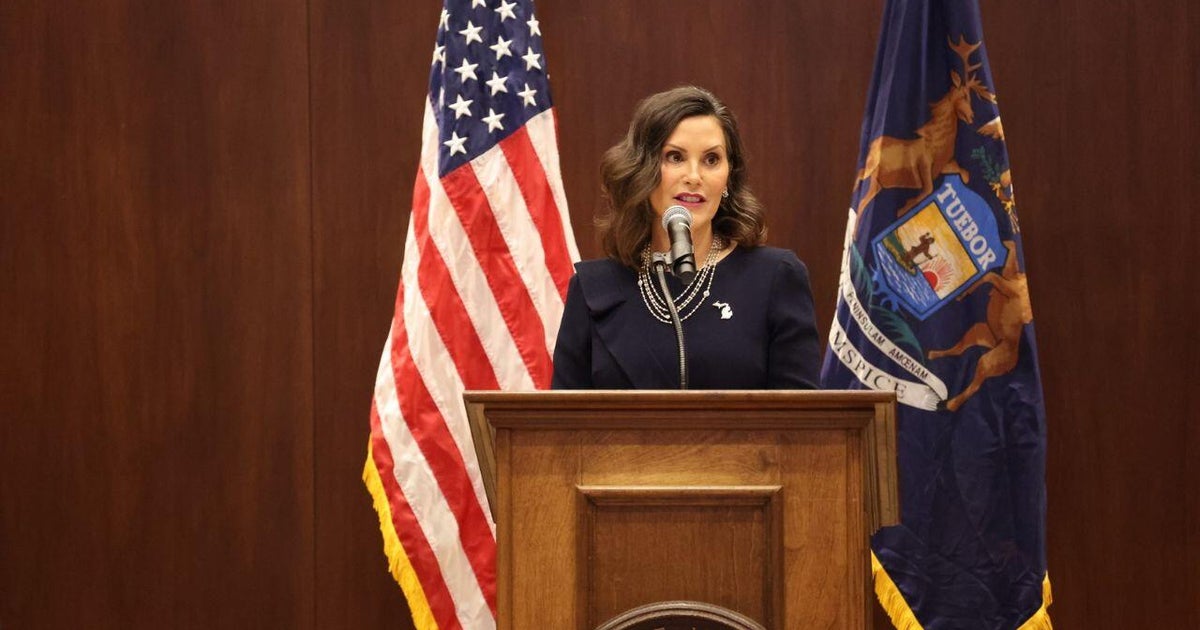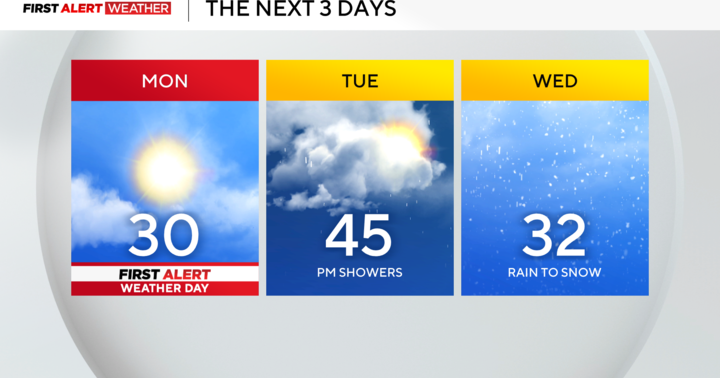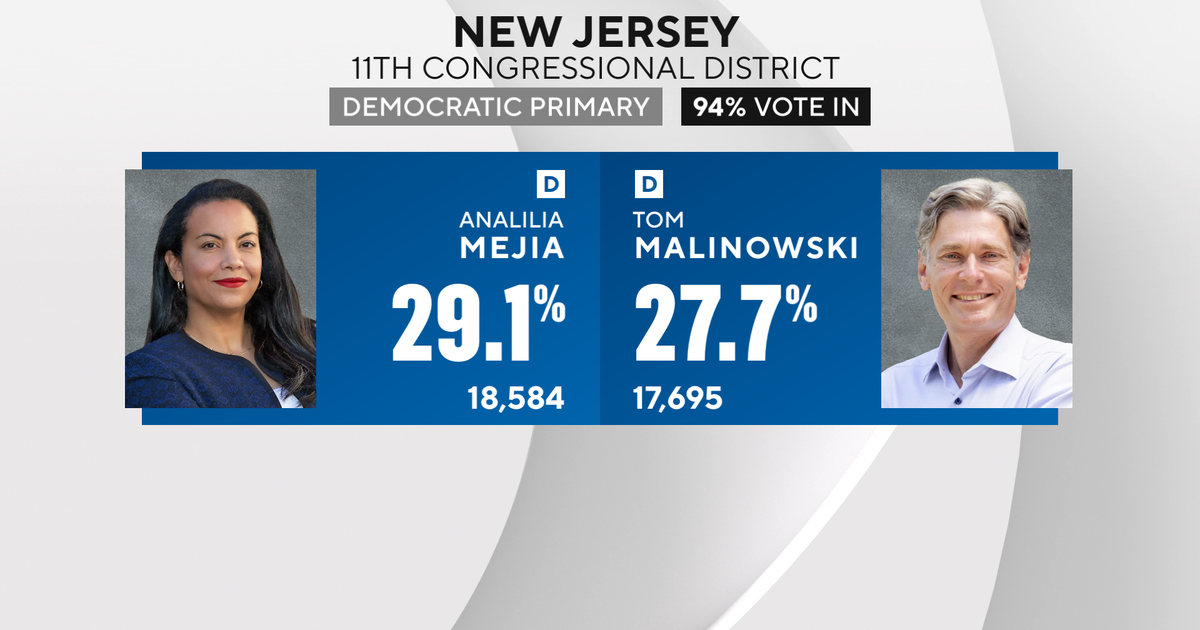Madison Matters: Recalls Create Powerless Senate?
MADISON, Wis. (AP) — Even if Wisconsin Democrats win back the state Senate through recall elections this summer, they'll have no ability to push their agenda for months and could find themselves out of power by this time next year.
Democrats need to win only one of the four Senate recall elections to seize the majority. But the elections aren't expected to take place until late spring at the earliest and the legislative session ends in mid-March. Under legislative rules, no bills can be introduced after that date until the next session begins in January 2013. And Republicans would get a chance just months after the recalls to retake the chamber.
"Symbolically, it of course would be a real victory if (Democrats) take the Senate, even if you're not going to do anything with it," said Charles Franklin, a visiting professor of law and public policy at Marquette Law School. "But other than symbolism, it's not likely to have any major political ramifications."
Democrats and their allies have pushed recall efforts against GOP Gov. Scott Walker, Lt. Gov. Rebecca Kleefisch and a dozen Republican senators since Walker introduced his contentious collective bargaining law nearly a year ago.
The measure stripped most public workers of nearly all their bargaining ability. Walker said he had to make the move to fill the state's $3.6 billion deficit. Democrats took it as a direct assault on unions, one of their core constituencies.
Hundreds of thousands of people converged on the state Capitol to demonstrate against the plan, leading to three weeks of around-the-clock protests. The 14 minority Democrats in the Senate fled to Illinois to block a vote on the plan, but Republican lawmakers ultimately passed the plan without them. Walker signed it into law in March.
Hungry for payback, Democrats forced six Republican senators into recall elections last summer. They defeated two, narrowing the GOP's edge in the chamber to just one vote.
Two months ago they began recall signature drives against Walker; Kleefisch; Senate Majority Leader Scott Fitzgerald of Juneau; and Sens. Terry Moulton of Chippewa Falls, Pam Galloway of Wausau and Van Wanggaard of Racine. On Tuesday the Democrats dropped off what they said were about 1.9 million signatures — more than enough names to force each Republican into an election — with the state Government Accountability Board.
The Republicans have lambasted the efforts. They insist they delivered on promises to balance the state budget and saved public workers from being laid off. They also maintain local governments can't afford the expense of extra elections in 2012.
The board already has begun verifying the signatures' authenticity, but the process could take months, pushing the elections into late spring or early summer. The last regular legislative floor session day is set for March 15, essentially neutering any potential Democratic Senate majority until at least January, when next two-year session begins.
The Legislature could reconvene itself in the interim in an extraordinary session, but that's unlikely. Such a session requires approval from both the Senate and Assembly scheduling committees. Republicans control the Assembly and all of them will be busy during the summer campaigning for the regular November elections. They almost certainly wouldn't agree to reconvene to pass any Democratic Senate bills.
If a Democrat manages to wrest the governor's office from Walker in a recall, he or she could convene the Legislature in a special session, but again Assembly Republicans would just block any Democratic initiatives.
Come November, the GOP would have a chance to take back the majority. If that happens, they'd slide back into control when the new session starts next year with no damage done.
"The session will be over by the time these recall elections happen," said Dan Romportl, executive director of the state GOP's Committee to Elect a Republican Senate. "I don't really know what they hope to accomplish."
Senate Minority Leader Mark Miller, D-Monona, said he thinks Assembly Republicans would agree to an extraordinary session. After watching their Senate colleagues fall in recall elections they'll be eager to show they can cooperate with Democrats going into November, he said.
"When there's a public outcry, I think that's intolerable for anybody going into the general election," Miller said. "When these recalls are over there will be a return to common sense and a recognition that they've gone too far."
Brad Wojciechowski, communications director for the state Democratic Party's Senate committee, said Democrats want to build a multiple-seat majority through the recalls, and then focus on defending it in November. Holding it will be easier than capturing it then, especially if new district lines are in play, he said.
Republican lawmakers reconfigured the state's legislative districts last summer to reflect population changes in the 2010 census, creating GOP strongholds across the state. Democrats have challenged the new boundaries in federal court, arguing they're unconstitutional. The case is set for trial next month.
In any event, the recall efforts have energized the Democratic base across the state, creating momentum for November, Wojciechowski said.
"(It) sends a strong message that we are definitely awakened," he said. "We're not looking at a short-term victory here. ... we're definitely going to try our hardest to defend and keep the majority in November."
Lori Compas, a Fort Atkinson photographer who organized the recall effort against Scott Fitzgerald, said she doesn't care who controls the Senate. She just wants someone in Madison, Republican or Democrat, who will listen to the people.
"I just would like to have someone," she said, "who is focused on our Senate district and our state and not someone who is accepting some national agenda that comes from somewhere we don't even know about or understand."
(© Copyright 2012 The Associated Press. All Rights Reserved. This material may not be published, broadcast, rewritten or redistributed.)







